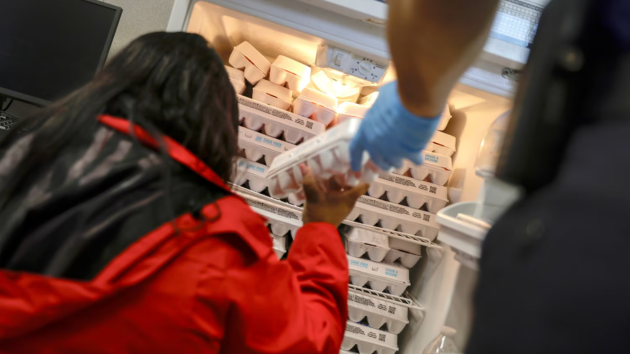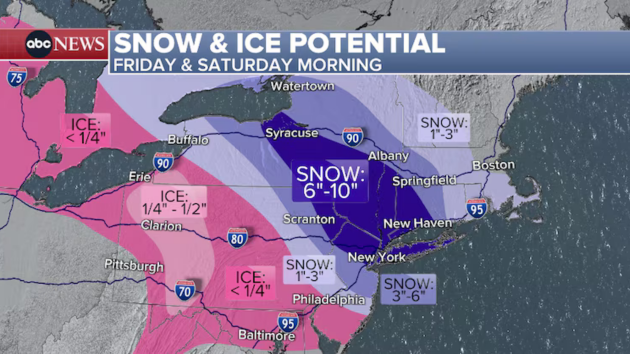More military families turning to food banks as government shutdown wears on
Written by ABC Audio ALL RIGHTS RESERVED on October 23, 2025

(WASHINGTON) –Food banks are seeing a surge of demand across the country as the government shutdown weathers its fourth week – and military families are among those turning to public pantries to put food on the table.
The Armed Services YMCA (ASYMCA), a nonprofit that provides support and assistance to military families, told ABC News that they’ve seen a 30%-75% jump in demand at its food banks near military bases since the shutdown began, as military personnel go without pay while the funding impasse wears on.
The ASYMCA in Killeen, Texas, near Fort Hood, told ABC News that they’ve seen a 60% spike in military families seeking food at their location.
Amy George, senior vice president of Military Family Services for the ASYMCA, told ABC News that the shutdown is hurting military families.
“When you see service members in their military uniform raising their hands and saying, ‘hey, I need a little extra support in the form of food,’ it is surprising and shocking,” George said. “We do want America to see this picture, to try to better understand that these are some of the challenges that military families are facing.”
The Pentagon diverted money in its budget to prevent military families from missing their paychecks earlier this month. But as their next payday approaches on Oct. 31, it’s unclear if they will get paid this time.
“I think we’re concerned, like everybody else, and very hopeful that it’ll end sooner than later,” George added of the shutdown.
The Senate on Thursday failed to advance a bill sponsored by Sen. Ron Johnson, R-Wis., that would have provided appropriations to pay military personnel and “excepted employees” of federal agencies being affected by the shutdown.
One client of the ASYMCA food bank in Killeen told ABC News that she feels caught in the middle of a political battle, and that she would have to visit a second food bank later that day in order to feed her family.
“I feel like we’re in the crossfire,” she said. “Our families are struggling, and it’s causing way too much stress and a burden on our families.”
She urged lawmakers on Capitol Hill to end the shutdown: “Finish it, get together. Make a plan.”
Government food assistance programs across the country also could end on Nov. 1 if the government shutdown, now the second-longest in U.S. history, continues beyond that date. Many states are warning that the Supplemental Nutrition Assistance Program, known as SNAP, which is administered by states but funded by the federal government via the U.S. Department of Agriculture, could halt benefits.
In a letter to state health officials obtained by ABC News during the second week of the shutdown, Ronald Ward, the acting head of SNAP, said the program on which millions of low-income Americans rely “has funding available for benefits and operations through the month of October.”
“If the current lapse in appropriations continues, there will be insufficient funds to pay full November SNAP benefits for approximately 42 million individuals across the nation,” Ward added.
Earlier this month, Feeding America, a nationwide network of food banks, also urged Congress to end the shutdown.
“Many people in America are a single missed paycheck away from needing support from their local food banks. A prolonged shutdown will deepen the strain, and more families will seek help at a time when food banks are already stretched due to sustained high need,” Claire Babineaux-Fontenot, CEO of Feeding America, said in a statement.
“We urge Congress to end the shutdown,” she added.
Copyright © 2025, ABC Audio. All rights reserved.
 KVSP
KVSP 




